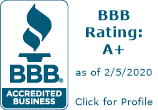Moving Out of Your Parents’ Home – How to Do It Right?
Moving out of your parents’ home marks a significant milestone, brimming with opportunities for young adults in the SMA. It heralds newfound independence, offering the chance to establish personal routines and create a unique living space. Embracing this change also means shouldering responsibilities such as managing bills and cooking, which are essential for personal development. However, with careful preparation, this new life chapter promises growth, freedom, and the excitement of independent living. And the best movers and packers Seattle has are here to tell you how and when to do it!
Juggling Independence and Responsibility
Moving out of your family home is a major step towards independence. Gaining it means mastering a few essential life skills that will help you manage daily tasks efficiently:
- Budgeting: Create a monthly budget that includes rent, utilities, groceries, transportation, and other expenses. Apps like Mint or YNAB can help track your spending.
- Cooking: Learn basic cooking skills to prepare meals at home. It will save money and improve your diet.
- Housekeeping: You’ll need to maintain a clean and organized living space. It includes regular cleaning, laundry, and minor repairs.
Next, set up a system for managing bills and ensure you stay on top of your financial obligations. Here’s what you need to know and do to be ready:
- Rent and Utilities: Ensure you can consistently pay rent on time. Set up automatic payments for recurring utilities.
- Emergency Fund: Build an emergency fund to cover unexpected expenses, such as medical bills or urgent repairs. Aim for at least three months’ worth of living expenses.
- Credit Score: Maintain a good credit score by paying bills on time and keeping credit card balances low. This will help when renting an apartment or buying a home in the future.
Moving out is also an opportunity for significant personal growth. Developing good habits and skills will help you thrive in your new environment:
- Time Management: Balance work, social life, and personal time effectively. Use planners or digital calendars to keep track of commitments.
- Self-discipline: Stay focused on your goals and avoid unnecessary expenses. Practice self-control and prioritize long-term benefits over short-term pleasures.
- Problem-Solving: Develop the ability to handle issues independently, from fixing minor household problems to managing conflicts.
Taking these steps will help you transition smoothly into independent living, ensuring you are prepared to manage the responsibilities that come with moving out.

Financial Realities of Moving Out in Seattle
The cost of renting in Seattle varies significantly depending on the neighborhood. Here’s a snapshot of what you can expect as you prepare for moving out of your parents’ home:
- City Center: Renting a one-bedroom apartment in downtown Seattle averages around $2,200 per month. This area includes neighborhoods like Belltown, Capitol Hill, and South Lake Union, which are popular due to their proximity to major employers and vibrant nightlife.
- Suburbs: In suburban areas such as Shoreline, Renton, Lynnwood, and Woodinville, you can find one-bedroom apartments averaging around $1,700 to $2,000 per month. These areas offer a quieter environment and are typically more affordable than the city center.
If you’re considering buying and booking movers in Woodinville WA, know that Seattle’s housing market is equally competitive. The median home price in Seattle is approximately $800,000. Here’s a breakdown by area:
- Seattle: Within the city, neighborhoods like Queen Anne and Ballard see median home prices around $900,000 to $1,000,000.
- Surrounding Areas: In suburbs like Bellevue, Redmond, and Woodinville, median home prices range from $700,000 to $900,000. More distant suburbs, such as Kent and Everett, have median prices around $500,000 to $700,000.
Moving out of your family home in Seattle involves understanding the financial landscape. Its rental market is known for its high prices, driven by the city’s tech industry and strong economy. The demand for housing remains high, leading to a competitive market for renters. So, what does it mean for you? Start budgeting on time.
Setting a Realistic Budget
Creating a budget is crucial to manage your finances effectively. Here’s how to get started:
- Calculate Your Income: Include all sources of income, such as salary, freelance work, and any other earnings.
- List Monthly Expenses: Include rent, utilities, groceries, transportation, insurance, and other recurring costs. Don’t forget to factor in entertainment and personal expenses.
- Plan for Savings: How much should you save before moving out? Aim to save at least 20% of your income, if possible, with a focus on building an emergency fund of three to six months’ worth of living expenses.
- Track Your Spending: Use budgeting apps to monitor your spending and adjust your budget as needed.
- Cut Unnecessary Costs: Identify and reduce non-essential expenses. This might include eating out less, canceling unused subscriptions, or finding more affordable alternatives for regular purchases.
When moving out, it’s essential that you’re financially prepared. Understand the costs associated with renting or buying in Seattle. Set a realistic budget that accounts for all your expenses and includes a savings plan. Being financially disciplined will help you manage the transition smoothly and ensure you can handle any unexpected expenses that may arise.

Timing Your Move
Choosing the right time for moving out of your parents’ home can significantly impact your experience. In Seattle, the best time to move is during late spring to early summer, specifically from May to July. This period offers the most favorable conditions for a move with HB move management, with longer daylight hours and relatively mild weather. Additionally, moving during these months allows you to settle in before the busy fall season.
Weather Considerations
Seattle is known for its rainy climate, particularly from October to April. Moving during the rainy season can be challenging due to wet and slippery conditions, which can complicate the logistics of transporting furniture and other belongings. Late spring and early summer typically bring drier weather, reducing the risk of rain-related issues and making the move smoother and safer.
Coordination with Lease Terms and Academic Schedules
Timing your move to align with lease terms and academic schedules can further simplify the process. Many leases in Seattle start and end around the summer months, as it coincides with the academic calendar. If you’re a student or connected to the academic community, planning your move during the summer break can be advantageous. Proper timing avoids the stress of moving during busy academic periods and ensures you have ample time to settle into your new place before classes resume.
For those not tied to academic schedules, aligning your moving services in Seattle with the end of your current lease is essential. Breaking a lease can be costly, so plan your move to coincide with the lease’s expiration. Start searching for a new place a few months in advance to ensure you find a suitable apartment and can give proper notice to your current landlord.
Practical Steps for Moving Out of Your Parents’ Home
Properly preparing for your move helps you secure a suitable apartment, handle necessary paperwork efficiently, understand your legal rights, and manage the logistics of moving out of parents’ home. Timely preparation minimizes potential issues, protects your interests, and sets a solid foundation for a stable and successful start in your new Seattle home.
Finding a Rental Apartment
Searching for a rental apartment in the SMA can be challenging due to the competitive market. Start by identifying your budget and preferred neighborhoods. Use online platforms like Zillow, Apartments.com, and Craigslist to browse available listings.
It’s beneficial to visit the neighborhoods in person to get a feel for the area and its amenities. Attend open houses and schedule viewings to see the apartments firsthand. Act quickly when you find a suitable place, as desirable apartments tend to get rented out fast.

Necessary Documentation for Renting
Once you find an apartment you like, be prepared with the necessary documentation to secure the rental. Most landlords will require:
- Proof of Income: Pay stubs, tax returns, or a letter from your employer.
- Credit Report: A good credit score is crucial, so obtain a recent credit report.
- Rental History: Contact information for previous landlords or property managers.
- Identification: A government-issued ID such as a driver’s license or passport.
- Application Fee: Some landlords charge a non-refundable fee to process your application.
Having these documents ready can expedite the application process and improve your chances of securing the apartment.
Legal Considerations and Tenant Rights
Understanding your rights as a tenant in Washington State is essential. Familiarize yourself with the Residential Landlord-Tenant Act, which outlines the responsibilities of both landlords and tenants. Key points include:
- Security Deposits: Landlords can charge a security deposit, but they must provide a written statement of its condition upon move-in.
- Maintenance and Repairs: Landlords are responsible for maintaining the property and making necessary repairs. Tenants should report issues promptly.
- Lease Agreements: Read your lease carefully before signing. Ensure you understand the terms, including the lease duration, rent amount, and policies on pets, subletting, and breaking the lease.
- Eviction: Landlords must follow legal procedures for eviction, including providing written notice and a valid reason.
Knowing your rights helps protect you from unfair practices and ensures a smooth renting experience. Hence, familiarize yourself with local tenant laws in Washington State to avoid potential issues.
Moving Logistics
Planning the logistics of your move is essential for a smooth transition. You have two main options: hire professional movers or do it yourself (DIY).
Hiring Movers
A professional moving company in Washington State can simplify the moving process. They handle packing, loading, transporting, and unloading your belongings. Research moving companies read reviews, and get quotes from multiple providers. Ensure the company is licensed and insured. While hiring movers is more expensive, it reduces the physical burden and stress of moving.
DIY Moving
If you prefer to save money, consider renting a moving truck and enlisting friends or family to help. Budget for rental costs, fuel, and packing supplies. Start packing well in advance, labeling boxes by room to make unpacking easier. Be prepared for the physical effort involved in lifting and transporting heavy items. Regardless of whether you choose professional movers or a DIY approach, planning ahead and organizing your move will make it more efficient and less stressful.

Managing the Emotional Transition
Even a local move in Seattle can be emotionally challenging. To cope with anxiety, acknowledge your feelings and give yourself time to adjust. Practice self-care techniques such as deep breathing, meditation, and regular exercise to manage stress. Keeping a journal to express your thoughts and feelings can help you process the changes and reduce anxiety.
Importance of Maintaining Family and Friend Connections
Maintaining connections with family and friends is important for emotional support. Since you’re moving with local movers in Seattle and staying close by, it’s easier to visit loved ones regularly. Plan weekly meet-ups or coffee dates to stay connected. These familiar relationships provide comfort and stability during this transitional period, making the move feel less overwhelming.
Building a New Support Network
Even within Seattle, building a new support network in your neighborhood is essential for long-term emotional well-being. Join local clubs, organizations, or hobby groups to meet new people with similar interests. Attend community events and engage with neighbors to foster new friendships. Building these connections helps create a sense of belonging and support in your new environment, making your local move a positive and enriching experience.
Moving Out and Moving Up!
Moving out of your parents’ home in Seattle is an exciting leap into adulthood. It is your opportunity to create a space that reflects your personality, develop new routines, and tackle the challenges of independence head-on. Seattle is full of opportunities waiting to be discovered, and your journey is just beginning. Make the most of every moment and trust in your ability to thrive!
Why Choose Us
History
Hansen Bros. Moving & Storage is locally owned and operated by the same family for four generations, since 1890. We have a well-established reputation for service quality and reliability with a high percentage of repeat household and commercial clients.
Professionalism
We’re a certified ProMover by the American Moving and Storage Association with A+ rating with the Better Business Bureau, voted “Best in Western Washington” in 2009 and from 2011 to 2016 by KING5. Our company is fully licensed and insured and member of WMC and AMSA.
Value
Hansen Bros. Moving & Storage provide free, no-obligation in-home estimate and competitive rates, including low minimum rates for shipments moving under 300 miles. We’ve set a refund policy for unused packing materials and three Puget Sound locations to help clients save on travel fee costs.



